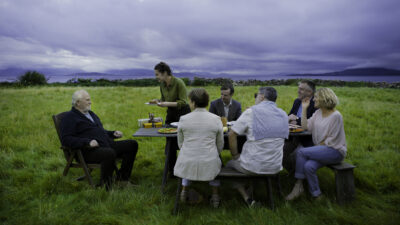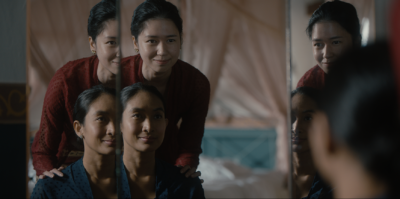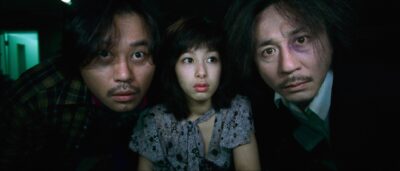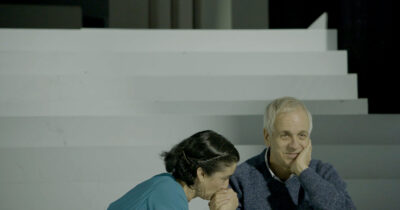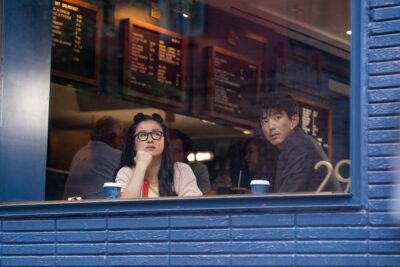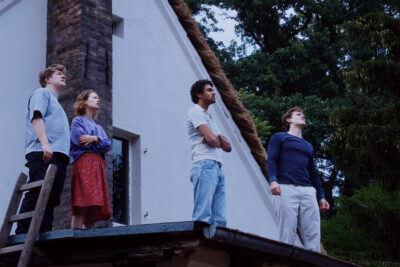For much of cinema history, the sight of a big Z slashing across the screen promised the fictional adventures of a sword-wielding caped crusader, but starting in 1988, that big red Z started to stand for something else amongst discerning cinephiles, as real life heroes Nancy Gerstman and Emily Russo believed there was a better way forward for the films they loved. Starting Zeitgeist Films out of a small West Village apartment after working a variety of jobs in film distribution, the two have played an outsized role in shaping film culture in the decades since, taking a quality over quantity approach to making room in a crowded American theatrical marketplace for some of the most daring work from around the world. Limiting their acquisitions to a manageable slate of four to five releases a year where each one would receive their undivided attention, a necessity when championing artists such as Bruce Weber (“Let’s Get Lost”), Peter Greenaway (“The Draughtman’s Contract”), Derek Jarman (“Blue”) and Guy Maddin (“Cowards Bend at the Knee”) without deep pockets, the duo has not only had the foresight to see the enduring nature of the films themselves that they release, but the value of time in how much they put into each film and how it has afforded them the sustainability to keep going.
“We noticed that there were companies that started that spent a lot of money on films and would acquire a lot and those companies went out of business extremely quickly,” Gerstman said recently on the occasion of the company’s 35th anniversary. “And we wanted to stay in business and we were able to.”
Their latest milestone has led the Metrograph in New York to pay Zeitgeist a much-deserved month-long tribute with an in-theater 13-film retrospective, kicking off this Friday with Gerstman and Russo introducing a newly spiffed up 4K restoration of “Sophie Scholl: The Final Days,” Marc Rohemund’s unfortunately all-too-relevant WWII tale of the Munich University student who stood up against the infiltration of Nazi thought at school, and an additional 20 films being made available on the theater’s streaming service Metrograph-At-Home, tilting towards the visionary meta-fiction works from Yvonne Rainer, Atom Egoyan and Jennifer Baichwal that the distributor pushed long before such playful documentaries were in fashion. Guests of the series such as Raoul Peck (“Lumumba”), Christine Vachon (“Poison”) and Astra Taylor (“Examined Life”) reflect the range of Gerstman and Russo’s belief in taking advantage of the big screen’s ability to hold a variety of perspectives, yielding a catalog deep with films where the ordinary becomes extraordinary simply by telling stories that have been overlooked, particularly when it comes to the hidden histories of women and gay life in the 20th century.
With the machinery they’ve built over the years, Gerstman and Russo have celebrated the careers of free-thinking artists and activists as a home to documentary profiles of filmmakers such as Maya Deren (“In the Mirror of Maya Deren”) and Alice Guy Blache (“Be Natural”), photographers Cecil Beaton (“Love Cecil”) and Bill Cunningham (“Bill Cunningham: New York”) and intellectuals Noam Chomsky (“Manufacturing Consent”), Hannah Arendt (“Vita Activa”) and Slavoj Zizek (“The Pervert’s Guide to Ideology”) while helping launch so many others, picking up on the early promise in the work of Todd Haynes (“Dottie Got Spanked”), Laura Poitras (“The Oath”), Chaitanya Tamhane (“Court”), Talya Lavie (“Zero Motivation”), and Andrey Zvyagintsev (“Elena”). (Only they could arrange for a documentary to be made about the stop-motion animation maestros the Brothers Quay made by Christopher Nolan, whose first film “Following” they shepherded to theaters.)
As Gerstman and Russo readily acknowledge, the work has only gotten more difficult as time has gone on, but leaning on good taste and institutional knowledge, they have beaten the odds to become a pillar of arthouse cinema and in having such a hand in bringing important voices into those sacred spaces, it was truly an honor to get to speak to them on the eve of their retrospective at the Metrograph, which may be a short distance from their offices, but involves a journey that cuts across multiple countries and decades as they’ve brought global cinema to the city and beyond.
Click here to read the interview.


